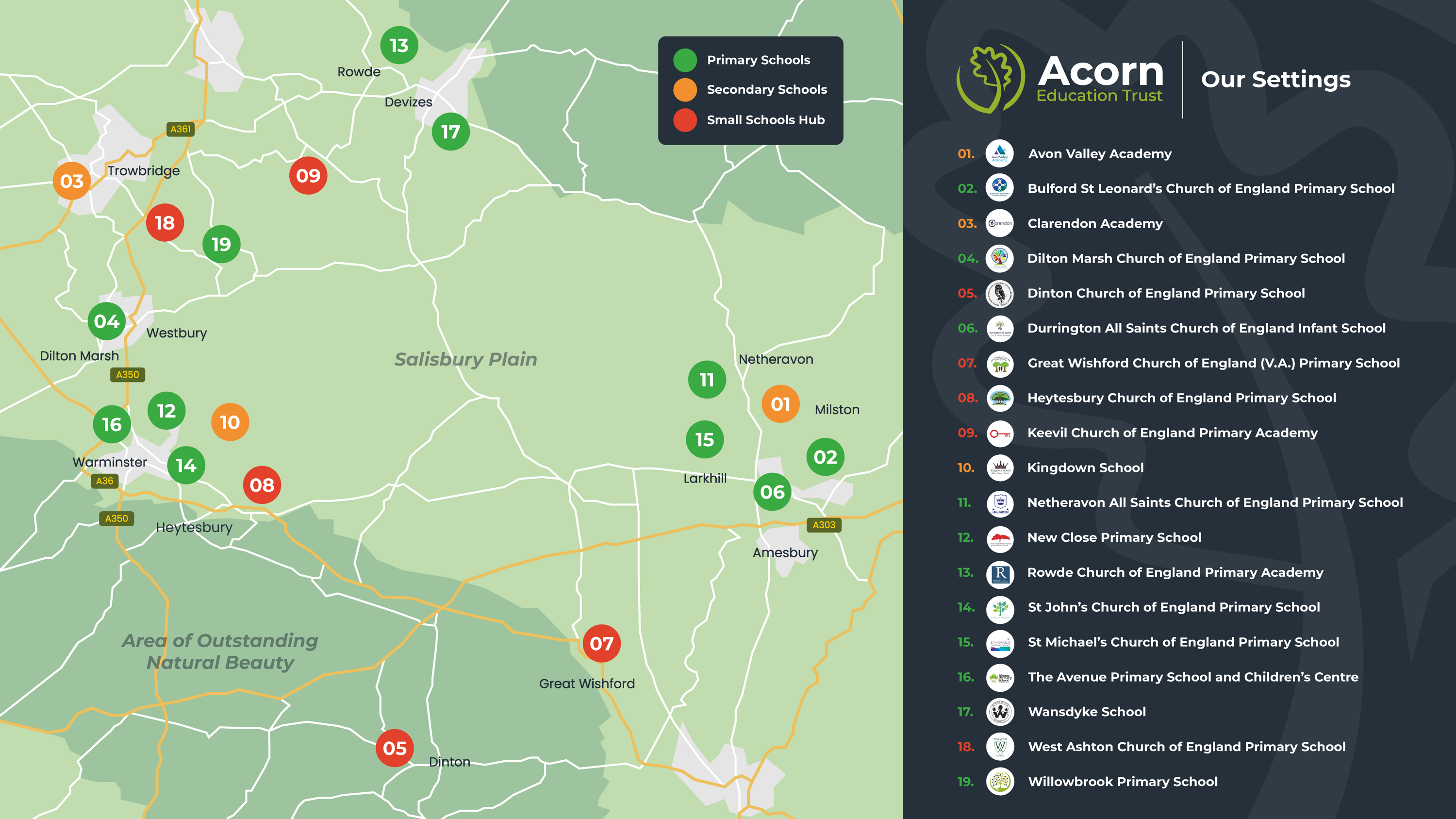Small Schools Hub
The Small Schools Hub is a group of the Trust’s smaller primary schools that work collaboratively to help provide solutions and support to each other.
In the summer of 2023 Acorn launched their Small Schools Hub. This hub recognises that smaller schools typically have smaller teams; as a result of this, staff in these setting are covering more additional responsibilities, on top of their day-to-day roles, than their counterparts in larger schools.
The Hub helps spread the workload and supports school leadership when challenges arise across curriculum, staffing, and community engagement. Acorn is fortunate to have incredible staff working across all of their schools, and the Hub acts as a network to connect the teams in the smaller primaries and allow for the sharing of best practice, resources and responsibilities.
The Acorn Small Schools Hub

Culture, ethos and structure
At the heart of the Hub is the desire to provide truly exceptional places for children to learn and flourish. In line with the Church of England Education Office and Salisbury Diocese, Acorn believes that each school should, and must, have its own identity, character, vision and values. By working together, the smaller schools can tackle challenges together, meet the Trust’s mission of ‘preparing young people for their world in their time’ and thrive while retaining what makes each of them unique.
Most of the schools within the Hub operate on a three-class system:
- Reception, Year 1 & Year 2
- Years 3 & 4
- Years 5 & 6
Criteria for being part of Acorn’s Small Schools Hub
The DfE would class a large number of schools in the rural South West as ‘small’. Due to this, and the fluid dynamics of being a small school in Wiltshire, there is no fixed criteria to determine which schools are classed as ‘small’.
With this in mind, Acorn has determined that, within the Trust’s family of schools, a ‘small school’ is classed as those with under 100 children on roll, mainly split across three classes and located in rural villages. The majority of these schools are also Church of England schools; however, this is not a requirement.
Curriculum and assessment
At Acorn a core curriculum principle is to allow schools to sustain what ‘works’ and can be evidenced to, whilst using what works elsewhere in the Trust where support is needed. The Small Schools Hub assists leaders by allowing the interchange of curriculum resources, expertise and leadership between the schools.
Within the Hub, schools require different levels of support and are graded as either ‘high’, ‘medium’ or ‘low’. These levels are decided on during 360 meetings, which are a collaborative evaluation of the school and involve the entire primary, SEND, HR, safeguarding and estates teams, Chair of Academy Council, Chair of the SSI Committee and the Chair of Trustees.
For assessment, the Small Schools Hub follow a similar direction as all Acorn primary schools.
While this model is based on Trust leader’s extensive experience, OFSTED inspections and outcomes, Acorn understands that each school is unique and therefore the model is adaptable to suit their needs.
Schools wishing to join the Hub
Acorn values each school’s individuality, and understands the responsibility that comes with the decision to join a Multi-Academy Trust.
Following any initial conversations about joining the Acorn family, but before any formal decisions about joining have been made, if a potential joiner meets the Small School Hub criteria (outlined above), then Acorn’s Small School Team will arrange a visit.
During this visit, the school, Small School’s Team and relevant members of the wider Senior Executive team, who have thorough understanding of the highs and lows of working in a small school, will have an open conversation about the school and what the Hub can potentially offer them.



